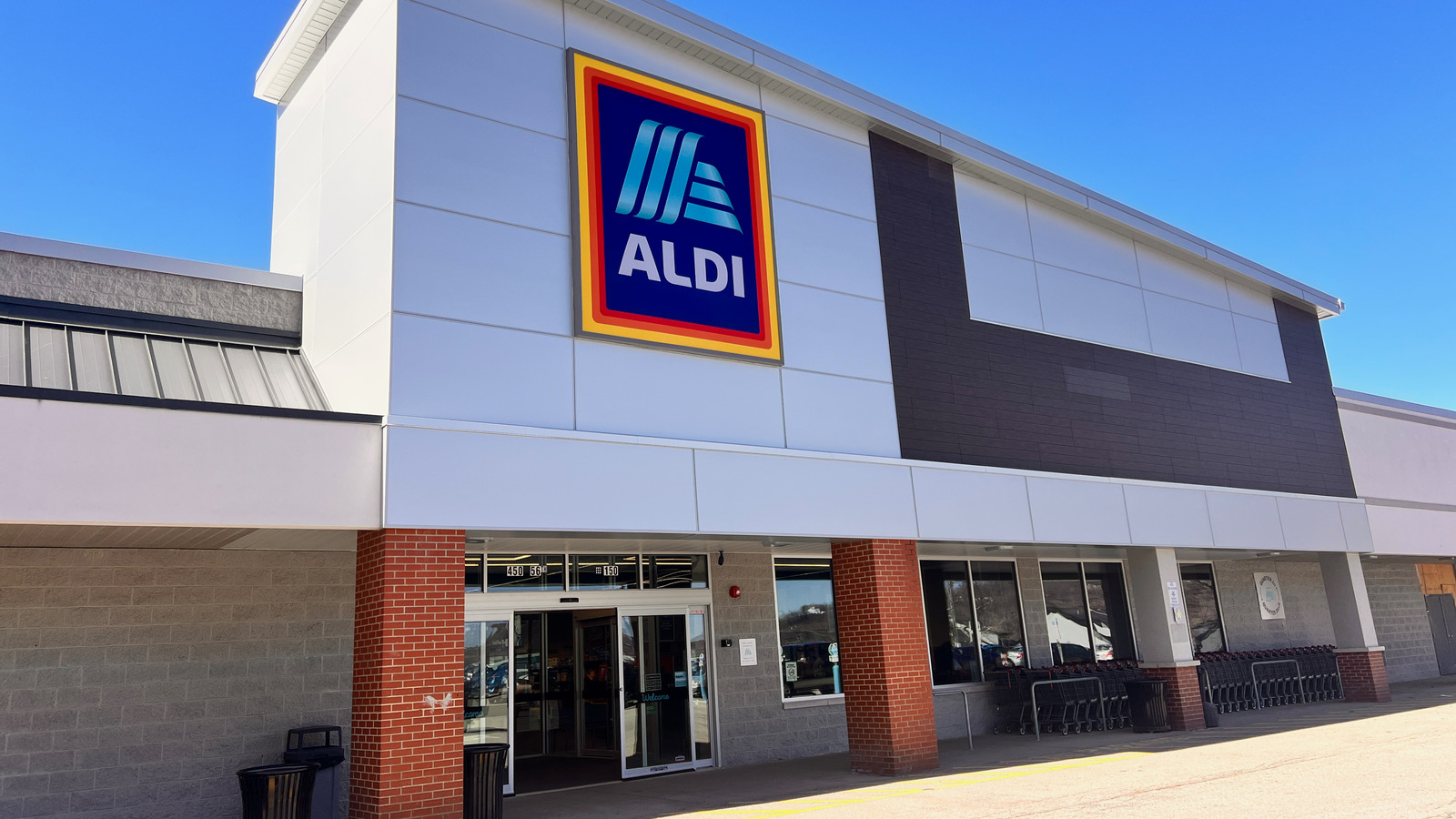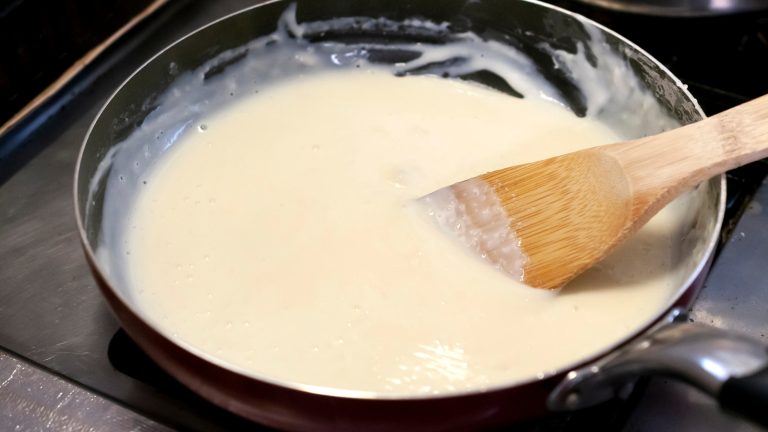For those looking for the ultimate in low-stimulation shopping with prices that make the experience that much more enjoyable, we recommend Aldi, a grocery store that is a far more toned down version of Trader Joe’s, though they share an origin story.
Aldi is stocked with private label brands, and some more popular ones, too. It is the ideal place to grab a deal on your grocery bill if you don’t feel brand loyalty. We have found that many of the options closely remember or even surpass the original versions. We love Aldi for helping us stock up on essentials in an inexpensive way. With this in mind, with rising prices on many grocery items, there are some specific categories you may want to stock up on before prices rise.
Many prices are suffering from the effects of tariffs, but others are struggling due to poor weather conditions. Some of these trends are the result of issues coming for years, but others are newer concerns. Still, no one’s crystal ball is 100% foolproof. Since so much grocery store food and its packaging originates outside the United States, it’s impossible to predict how much will be absorbed versus how much may be passed onto consumers — that is the big question. For a bit of insurance, taking some time to help build a stockpile can help ensure that you and your family aren’t caught off guard with expensive prices. Aldi is the perfect place to do that shopping that — but do it soon, before prices do rise.
Seafood
Americans love fishing, and serving fish at the dinner table isn’t just a healthy choice, it’s delicious and sometimes even more cost-effective in certain markets. However, you might want to pick up seafood on your next Aldi’s run, because tariffs may just drive up the price.
The reason tariffs would impact seafood so significantly is because America imports most of its supply. The numbers are staggering. About 10% of the United States’ seafood comes from Chile, 26% from India, 23% comes from Indonesia, and an impressive 46% hails from Vietnam, per the USDA. Furthermore, the deficit between the export and import amount has been in decline since 2021, ultimately making seafood one of the meat products to buy now before prices get out of hand.
Aldi has several choices for seafood, including sockeye salmon, Norwegian salmon, steelhead, tilapia, and scallops, among others. You could also go for salmon burgers for an interesting spin on burger night.
Coffee
Beginning the day with a cup of coffee is a time-honored tradition for many Americans. Some make their own coffee at home, while others rely on talented baristas to get their brew just right. In either instance, the price of that morning mug of coffee goodness may be jumping in price, making it a potentially crucial add-on for your next trip to Aldi.
Why the increase in prices? It isn’t necessarily due to tariffs. Instead, your morning cup of coffee could get more expensive thanks to uncooperative weather. Brazil, home to a huge number of exported Arabica beans, has been experiencing less-than-ideal growing conditions, ultimately leading to a decrease in the amount of coffee produced. With less coffee available, the prices will, of course, go up.
You have an abundance of options for coffee at Aldi. There are single-serving pods, chilled coffee products, ground coffee, instant coffee, and even whole-bean options. Can’t stomach the idea of black coffee? Pick up some creamer while you’re there. With options like vanilla and oatmeal cookie, you’ve got great choices.
Bananas
Tariffs are said to eventually increase business in the United States. However, for some fruits, this result is quite unlikely. After all, bananas are not a fruit that can be reasonably produced in the United States at the scale Americans consume this beloved fruit. After all, tropical environments grow bananas, and while some regions of the country are warmer than others, by and large, bananas aren’t really a fruit grown stateside.
Instead of growing bananas on American soil, the country imports a staggering greater than 90% of its total banana usage, per the Banana Association of North America. Unfortunately, all of the countries the U.S. relies on to import bananas are part of the tariff increase. This means you’re going to want to pick up those bananas for smoothies, breads, and fruit salad sooner rather than later. Fortunately, frozen bananas make better banana bread, so you do no harm in stocking out as soon as you can. Plus, those same frozen bananas are perfect in smoothies. So that they are usable right out of the freezer, peel your bananas before freezing them.
Black pepper
Take a look at nearly any dinner table and you’ll likely find salt and pepper in the middle of the table, or at least within easy reach. Many restaurants supply them at tables, and the concept of seasoning with salt and pepper is nearly a given addition in a savory recipe. However, pepper may just become a more special ingredient as it sets to get pretty expensive. Black pepper may not be an item you consciously think about when creating your shopping list, but your pocketbook may be thankful for your vigilant attention to your family’s supply of this tasty spice.
The variance in the price has a lot to do with the way farmers respond to the fall or surpluses of black pepper demand. In 2018, there was a pepper surplus, so Vietnamese production (the leader in black pepper) began to dip when farmers didn’t see a significant enough return on pepper. Since the vines from which black pepper comes can take a few years after planting to bring about the black pepper, the result of this dip in plant creates a future dip in availability. Then, farmers plant more in an attempt to compensate. As a result, the growers are on a constant roller coaster ride, trying to adjust to the supply and demand that’s directly tied to their own growing choices.
Cheese
The American fridge is a fascinating space to explore, with many families dedicating a whole drawer of the fridge to the storing of cheese and perhaps cold cuts. Between wedges, blocks and bags, cheese from the grocery store manifests itself all over the menu in American households as a meal’s feature, accent, appetizer, or even as a dessert. This same cheese could experience an increase in price. In fact, in the first two months of 2025, cheese went up $0.02 from the average of 2024, per the USDA. At this point, it is outpacing pricing predictions, surpassing the previous month’s forecast.
Aldi offers its cheeses in blocks, shreds, singles, powder, and nearly anything else you might want. Of course, cheese has a shelf life, so be sure you’re paying attention to expiration dates and don’t outpace your family’s consumption and end up unintentionally wasting valuable cheese.
Candy bars
Resisting the candy bars at the checkout may soon become more vital as those tasty chocolate bars are skyrocketing in price. In 2024 alone, cocoa prices were up significantly, leading to drastic increases in prices in the stores. Ultimately, this led to consumers simply buying less chocolate. In fact, Hershey saw a drop in sales after the brand raised the price of chocolate candies. That said, there’s not a quick fix to this problem as the increase in prices is tightly tied to changes to growing regions’ weather, like Ghana, which could become too warm for growing cocoa only 25 years in the future.
All of this might result in the buying of less chocolate or a stocking up of the candy at the price it’s currently at. If you’re hoping for the latter, Aldi has chocolate bars for snacking, baking, or simply feeding that sweet tooth following a grocery shopping trip.
Toilet paper
If you’ve ever made paper, you know that it’s quite the process to reuse other paper products to press it into something that might resemble paper. Creating items like toilet paper out of nothing is a step further; taking wood pulp and make it into that most important of bathroom products. Something like toilet paper may feel protected from tariffs, but this raw material can be imported from places like Canada, where the importing of such materials could most certainly increase. Our recommendation is to steer yourself clear of such issues and slowly acquire something of a stockpile to rely on.
It’s hard to forget the empty toilet paper shelves of COVID-19, and we certainly aren’t advising that you clean out your Aldi of all its precious stock. However, it would help ease any future toilet paper frustration you could have by simply picking up toilet paper packs on your coming trips to help create a backlog you can rely on.
Aldi has several size and strength options for toilet paper as part of its Willow brand. You could go with the huge pack of 32 to ensure there’s no running out of toilet paper or something much smaller if your household might not need as much.
Aluminum foil
Whether you use aluminum foil for cleaning your kitchen, for covering the edges of your crust to keep your beloved pie from burning, or even for covering leftovers, you might want to stock up on this stuff soon. Since the United States imports largely aluminum from other countries, accounting for about 50% of the nation’s aluminum, per Statista. The USDA explains that “Aluminum foil is 98.5% aluminum with the balance primarily from iron and silicon to give strength and puncture resistance. The molten alloy is rolled thin and solidified between large, water-cooled chill rollers.” Since aluminum foil contains so much aluminum and the metal is set to experience a 50% increase, it stands to reason the price of foil may increase, too.
Aldi has a few options for foil to help you stock up on your aluminum foil supply. The choices are fairly similar, with the primary difference being in how long the rolls of foil actually are. Like toilet paper, don’t stock up all at once, but slowly over your next several shopping trips so you don’t contribute to a panic shopping event.
Olive oil
Like coffee and cocoa that are suffering the effects of changing weather conditions, olive oil prices are going up because the olive tree harvest has been suffering from too much heat and lack of water. These high temperatures and periods of drought have a direct impact on the amount that can be harvested. These issues are further complicated by the high cost for the growing and maintaining of the plants, including the cost of paying for the labor necessary. Pile on top of that an increased demand for the product, and you’ve got the perfect storm of issues that may create one expensive product.
To replenish your olive oil stockpile, Aldi offers extra virgin olive oil and pure olive oil varieties, in addition to a cooking spray. As you are planning ahead, keep in mind that you can keep your olive oil unopened and usable for about 18 months. However, if you open it, you should use it within four months.
Balsamic vinegar
If one of your favorite salad dressings is mixing balsamic vinegar and olive oil, there is a chance your salad is about to get quite a bit pricier. Along with olive oil, increasing in price, balsamic vinegar may very well be going up, too. That said, the world’s most expensive balsamic vinegar can go over $200 for even a small 100 milliliter bottle. So, presumably, the price for a typical balsamic vinegar could definitely get worse.
Goods from Italy are set to experience a 20% tariff. For balsamic vinegar, this means the tart and tasty stuff from Modena may rise in price as a result of such a tariff. This increase will put a strain on other brands not from Modena, so if you find balsamic vinegar on your Aldi run, it may be best to grab a backup bottle before it becomes too expensive or even difficult to find.
Beer
When items go up in price, it is not always clear why. When you hear that the price of beer might be going up, it is easy to imagine that it might be the price of the glorious golden liquid that is increasing, but the price increase that’s about to happen has everything to do with the can, not the beer itself. In fact, for the same reason aluminum foil costs may soar, so might the price of your favorite beer. Every beer brand and company uses different amounts of aluminum and metals in its packaging, so price fluctuations will differ, but no matter what way you slice it, it’s all going to go up in price.
For canned beer, you will find a few choices to stock up on at Aldi with a Pilsner, IPA, and even a mango wheat ale among the beer selection. As you stock up, be sure to note expiration dates so you aren’t caught with a beer that has gone bad. In terms of how long it takes for an unopened canned beer to expire, the difference varies based on the variety. Regardless of the particular type of beer, refrigerating an unopened beer can help preserve its flavor longer.
Canned goods
It’s a good thing that cans of food have a long shelf life, because there are plenty of canned foods you may want to buy now before prices skyrocket. The reason again relates back to the aluminum and steel tariff ravaging canned beer and aluminum foil. While canned beverages rely on aluminum, steel is more frequently used for canned veggies and other foods.
Thankfully, there are several canned foods at Aldi that you should definitely buy because they are just as delicious (if not more so) than other brands of canned food. We recommend the mixed vegetables, pineapple slices, cream-style corn, and corned beef hash. Between these items, you have choices for sides, essential ingredients in casseroles, and even pie fillings to make the whole tariff season seem even a small amount lighter.
It’s hard to stockpile ingredients that go bad easily, but that’s where canned foods are ultra handy. Unopened canned veggies, for instance, may last between 18 months and five years in your pantry. Pay close attention to those expiration dates and place cans in your pantry so that you can pull the oldest ones first.
Coconut Oil
Bad news for coconut oil fans: Prices are going up, and you should most definitely stock up. The Coconut Cooperative states that “As of May 2025, the average price of coconut oil has surged to approximately $2,483 per metric ton, a 74% jump compared to last year’s rate of around $1,425.” This dramatic jump, of course, has implications for families that rely on coconut oil, but entire industries using the product could see jumps in prices.
Thanks to weather issues, aging trees, and slowed transport, coconut oil is facing a slew of problems in the Philippines and Indonesia, where most of the world’s supply of the oil is produced. If you are a regular user of coconut oil for cooking or cosmetic purposes, Aldi has you covered with a jar of this precious oil. You can store your coconut oil in the fridge or pantry, but it will last longer if stored in the fridge once it’s been opened.





